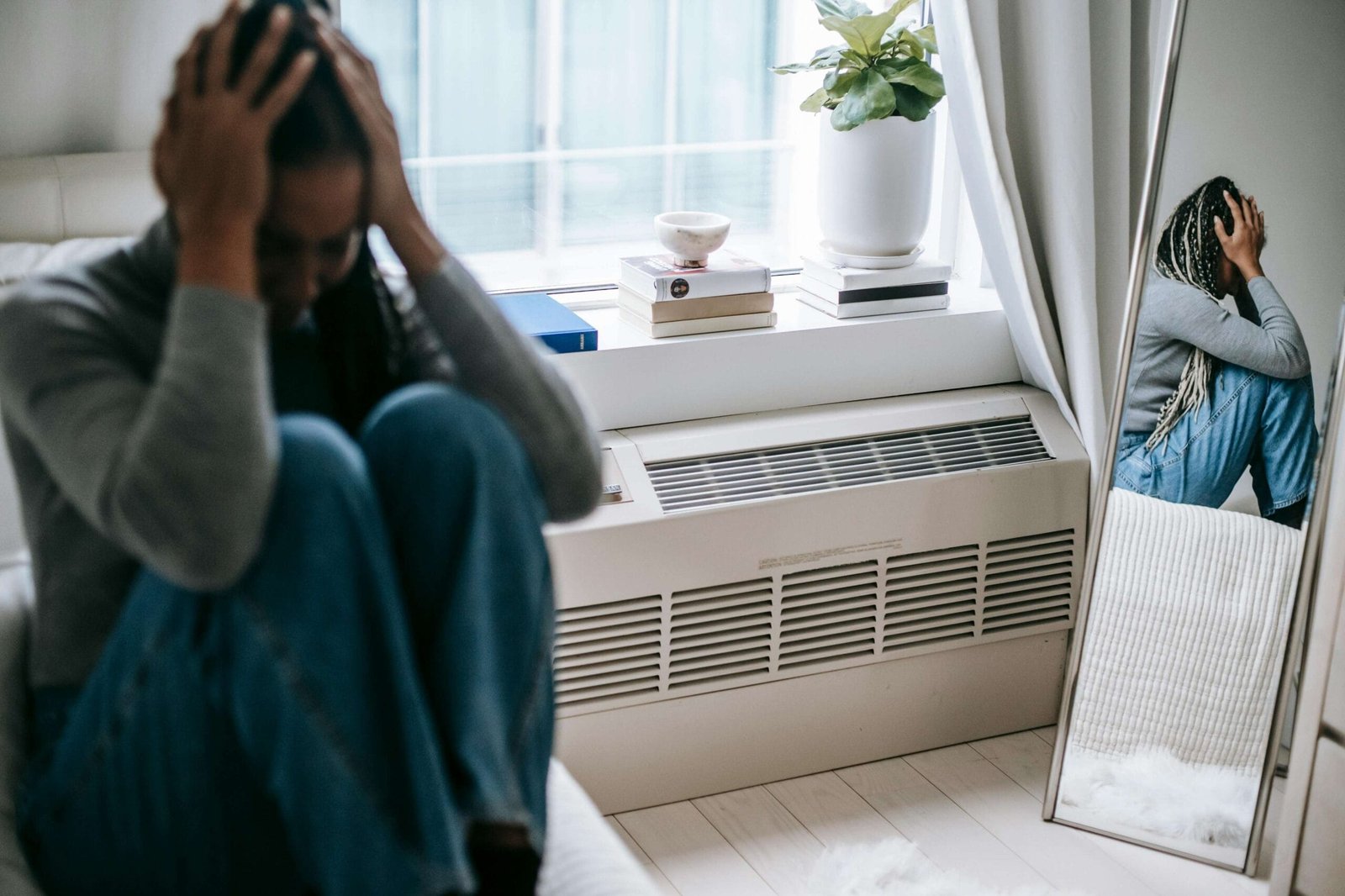Introduction
Anxiety and depression are two of the most common mental health challenges faced by individuals worldwide. Both conditions can deeply affect your emotional and physical well-being, creating a cycle of distress that seems hard to escape. Fortunately, there are numerous strategies available to help in breaking free from anxiety and depression. This article provides 12 expert tips for healing from anxiety and depression, offering practical guidance to help you achieve a more balanced and fulfilling life.
Table of Contents
1. Embrace Cognitive Behavioral Therapy (CBT)
Cognitive Behavioral Therapy (CBT) is one of the most effective treatments for anxiety and depression. CBT focuses on identifying and changing negative thought patterns and behaviors that contribute to these conditions. By challenging distorted thinking and replacing it with more realistic and positive thoughts, CBT helps individuals develop healthier coping strategies and improve emotional resilience.
How It Helps
CBT helps break the cycle of negative thinking that often accompanies anxiety and depression. By learning to recognize and reframe irrational thoughts, you can reduce the intensity of your symptoms and develop more constructive ways of dealing with stress. This therapeutic approach promotes self-awareness and equips you with tools to manage your emotions effectively.
Why It Works
The effectiveness of CBT lies in its structured approach to addressing negative thought patterns and behaviors. By focusing on specific issues and implementing practical strategies, CBT helps individuals make meaningful changes in their thought processes and emotional responses. This evidence-based therapy has been shown to reduce symptoms of anxiety and depression and improve overall mental health.
Tip
Consider working with a licensed therapist who specializes in CBT. They can guide you through the process of identifying and challenging negative thoughts and behaviors, helping you develop effective coping strategies for managing anxiety and depression.
2. Practice Mindfulness and Meditation

Mindfulness and meditation are powerful tools for managing anxiety and depression. Mindfulness involves paying attention to the present moment without judgment, which can help reduce rumination and stress. Meditation practices, such as guided imagery or mindfulness meditation, promote relaxation and a sense of calm.
How It Helps
Mindfulness and meditation techniques help calm the mind and body, reducing the symptoms of anxiety and depression. By focusing on the present moment, you can break free from the cycle of negative thinking and gain a greater sense of control over your emotions. These practices also promote relaxation, which can alleviate physical symptoms associated with anxiety and depression.
Why It Works
The effectiveness of mindfulness and meditation lies in their ability to shift focus away from distressing thoughts and feelings. These practices encourage a non-reactive awareness of your experiences, helping you manage stress and emotional discomfort. Research has shown that mindfulness and meditation can significantly reduce symptoms of anxiety and depression.
Tip
Incorporate mindfulness and meditation into your daily routine. Start with short sessions and gradually increase the duration as you become more comfortable with the practice. Apps and online resources can provide guided meditation and mindfulness exercises to help you get started.
3. Establish a Healthy Routine
Maintaining a healthy routine is crucial for managing anxiety and depression. A consistent daily schedule that includes regular sleep, balanced nutrition, and physical activity can significantly impact your mental health. Establishing routines helps create stability and predictability, which can reduce feelings of uncertainty and stress.
How It Helps
A structured routine supports overall well-being by providing a sense of stability and control. Regular sleep patterns, nutritious meals, and physical activity contribute to better mood regulation and reduce symptoms of anxiety and depression. A healthy routine also helps you develop positive habits that support mental health.
Why It Works
Consistency in daily routines helps regulate biological rhythms and supports overall mental and physical health. By establishing healthy habits, you create a foundation for better emotional resilience and reduced stress. Research indicates that a well-balanced routine can improve symptoms of anxiety and depression and enhance overall quality of life.
Tip
Create a daily schedule that includes time for self-care, physical activity, and relaxation. Aim for consistent sleep patterns and balanced meals to support your mental health. Track your routine to identify areas for improvement and make adjustments as needed.
4. Build a Support Network

A strong support network is essential for healing from anxiety and depression. Surrounding yourself with supportive friends, family members, and community resources can provide emotional support, encouragement, and practical assistance. Sharing your experiences with others who understand your challenges can alleviate feelings of isolation and provide valuable perspective.
How It Helps
A supportive network offers emotional reassurance and practical help, reducing the burden of anxiety and depression. Connection with others can provide encouragement and motivation, helping you stay engaged in your treatment and recovery process. A strong support system can also offer practical solutions and coping strategies.
Why It Works
Social support is a critical factor in mental health recovery. Positive relationships and a sense of belonging contribute to emotional resilience and well-being. Research shows that individuals with strong support networks experience lower levels of stress and improved mental health outcomes.
Tip
Reach out to friends, family, or support groups to build your support network. Share your experiences and seek their support when needed. Participating in community activities or joining support groups can also provide additional sources of encouragement and connection.
5. Set Realistic Goals
Setting realistic and achievable goals is an important aspect of managing anxiety and depression. Goals provide direction and purpose, helping you stay focused and motivated. Start with small, manageable objectives and gradually work towards larger goals as you gain confidence and progress in your recovery.
How It Helps
Setting and achieving goals can boost self-esteem and provide a sense of accomplishment. Breaking larger tasks into smaller, manageable steps helps reduce feelings of overwhelm and frustration. Progress towards your goals can enhance motivation and improve overall mood.
Why It Works
Goal-setting provides structure and purpose, which can be particularly beneficial for individuals experiencing anxiety and depression. Achieving goals, even small ones, fosters a sense of achievement and self-efficacy. Research supports the positive impact of goal-setting on mental health and overall well-being.
Tip
Identify specific, measurable, achievable, relevant, and time-bound (SMART) goals for your recovery. Break down larger goals into smaller steps and celebrate your progress along the way. Regularly review and adjust your goals to ensure they remain realistic and motivating.
6. Engage in Physical Activity

Regular physical activity is a powerful tool for managing anxiety and depression. Exercise promotes the release of endorphins, which are natural mood enhancers. Engaging in physical activity also improves overall health, reduces stress, and enhances cognitive function.
How It Helps
Physical activity boosts mood and reduces symptoms of anxiety and depression by increasing the production of endorphins and other neurotransmitters. Exercise also helps regulate sleep patterns, reduce stress, and improve self-esteem. Incorporating physical activity into your routine can enhance overall mental health and well-being.
Why It Works
Exercise has a direct impact on brain chemistry and emotional regulation. Regular physical activity helps balance neurotransmitters and reduces stress hormones. Research consistently shows that exercise is an effective intervention for reducing symptoms of anxiety and depression and improving overall quality of life.
Tip
Aim for at least 30 minutes of moderate exercise most days of the week. Choose activities you enjoy, such as walking, jogging, cycling, or dancing. Incorporate physical activity into your daily routine to maximize its benefits for mental health.
7. Prioritize Self-Care
Self-care is essential for maintaining mental health and supporting recovery from anxiety and depression. Engaging in activities that bring you joy, relaxation, and fulfillment helps replenish emotional and physical energy. Self-care practices can include hobbies, creative pursuits, or spending time in nature.
How It Helps
Prioritizing self-care reduces stress and enhances overall well-being. Engaging in activities that bring joy and relaxation can improve mood and provide a sense of accomplishment. Self-care practices also help you maintain balance and prevent burnout, supporting your recovery from anxiety and depression.
Why It Works
Self-care promotes emotional resilience and overall mental health by providing opportunities for relaxation and enjoyment. Incorporating self-care into your routine helps manage stress and supports a positive mindset. Research highlights the importance of self-care in maintaining mental health and enhancing recovery.
Tip
Identify activities that bring you joy and relaxation, and make time for them regularly. Incorporate self-care practices into your daily or weekly routine to support your mental health and recovery. Experiment with different activities to find what works best for you.
8. Explore Therapeutic Techniques
In addition to traditional therapies, exploring various therapeutic techniques can support your recovery from anxiety and depression. Techniques such as art therapy, music therapy, and animal-assisted therapy offer creative and non-traditional approaches to mental health treatment.
How It Helps
Therapeutic techniques provide alternative methods for expressing and processing emotions. Art therapy, for example, allows you to explore feelings through creative expression, while music therapy can enhance mood and provide relaxation. These techniques offer additional tools for managing anxiety and depression and can complement other therapeutic
approaches.
Why It Works
Alternative therapeutic techniques engage different aspects of the brain and provide new ways of coping with anxiety and depression. These approaches can enhance traditional therapy and offer additional support for emotional healing. Research supports the effectiveness of various therapeutic techniques in improving mental health outcomes.
Tip
Consider exploring different therapeutic techniques to find what resonates with you. Consult with a mental health professional to determine which techniques may be most beneficial for your needs. Incorporate these techniques into your overall treatment plan for a more comprehensive approach to recovery.
9. Cultivate Gratitude and Positive Thinking
Cultivating gratitude and positive thinking can significantly impact your mental health and support recovery from anxiety and depression. Practicing gratitude involves focusing on the positive aspects of your life and acknowledging what you are thankful for. Positive thinking helps reframe negative thoughts and fosters a more optimistic outlook.
How It Helps
Gratitude and positive thinking can shift your focus away from negative thoughts and enhance your overall mood. By recognizing and appreciating the positive aspects of your life, you can reduce feelings of hopelessness and improve emotional resilience. These practices promote a more positive mindset and support mental health recovery.
Why It Works
Focusing on gratitude and positive thinking helps counteract the negative thought patterns associated with anxiety and depression. Research shows that practicing gratitude and maintaining a positive outlook can improve mood and reduce symptoms of anxiety and depression. These practices contribute to overall well-being and mental health.
Tip
Incorporate gratitude practices into your daily routine by keeping a gratitude journal or expressing appreciation to others. Practice positive thinking by challenging negative thoughts and focusing on positive aspects of your life. Regularly engaging in these practices can enhance your overall mental health and support recovery.
10. Set Boundaries and Manage Stress
Setting boundaries and managing stress are crucial for maintaining mental health and supporting recovery from anxiety and depression. Boundaries help protect your personal space and emotional well-being, while stress management techniques can reduce the impact of daily stressors.
How It Helps
Setting boundaries helps prevent burnout and emotional exhaustion by ensuring you have time and space for self-care. Stress management techniques, such as deep breathing and time management, reduce the impact of stress on your mental health. Implementing these strategies supports a healthier balance and enhances your ability to cope with anxiety and depression.
Why It Works
Boundaries and stress management practices help create a more balanced and manageable environment. By setting limits and addressing stressors proactively, you reduce the negative impact of external pressures on your mental health. Research supports the benefits of boundary-setting and stress management for improving mental health outcomes.
Tip
Identify areas where you need to set boundaries and implement strategies to protect your well-being. Practice stress management techniques, such as deep breathing, relaxation exercises, or time management, to reduce the impact of daily stressors. Regularly evaluate and adjust your boundaries and stress management strategies to ensure they support your mental health.
11. Seek Professional Help

Seeking professional help is an important step in breaking free from anxiety and depression. Mental health professionals, such as therapists, counselors, and psychiatrists, provide expert guidance and support for managing these conditions. Professional help can include individual therapy, group therapy, medication management, and other treatment options.
How It Helps
Professional help provides access to specialized knowledge and tools for managing anxiety and depression. Mental health professionals can offer personalized treatment plans, therapeutic interventions, and support for navigating your recovery journey. Professional guidance helps ensure you receive appropriate care and support for your specific needs.
Why It Works
Mental health professionals have the expertise and experience to address complex emotional and psychological issues. They provide evidence-based treatments and support for managing anxiety and depression. Research shows that professional help is effective in reducing symptoms and improving overall mental health outcomes.
Tip
Consult with a mental health professional to discuss your symptoms and treatment options. Be open to exploring different therapeutic approaches and follow their guidance for optimal results. Regularly evaluate your progress with your provider and make adjustments to your treatment plan as needed.
12. Practice Self-Compassion
Self-compassion involves treating yourself with kindness and understanding, especially during challenging times. Practicing self-compassion means acknowledging your struggles without self-judgment and offering yourself the same support and care you would offer a friend.
How It Helps
Self-compassion reduces feelings of self-criticism and promotes emotional resilience. By treating yourself with kindness and understanding, you can improve your overall mood and enhance your ability to cope with anxiety and depression. Self-compassion supports a positive mindset and fosters emotional healing.
Why It Works
Self-compassion helps counteract the negative self-talk and self-judgment that often accompany anxiety and depression. Research shows that practicing self-compassion is associated with reduced symptoms of anxiety and depression and improved overall mental health. Self-compassion promotes a more nurturing and supportive approach to managing your mental health.
Tip
Incorporate self-compassion practices into your daily routine by acknowledging your efforts and treating yourself with kindness. Use positive affirmations and self-soothing techniques to support your emotional well-being. Regularly practice self-compassion to enhance your ability to manage anxiety and depression.
Conclusion
Breaking free from anxiety and depression requires a multifaceted approach that combines various strategies and techniques. By implementing these 12 expert tips for healing, you can create a comprehensive plan for managing your mental health and improving your overall well-being. Remember, recovery is a journey that requires patience and persistence. Seek support, embrace positive practices, and take proactive steps to support your mental health. With the right tools and strategies, you can achieve a more balanced and fulfilling life.
Visit our blog page for more informative and educative articles.
Visit alphanewsweb.com for up to date and exclusive news and information.





